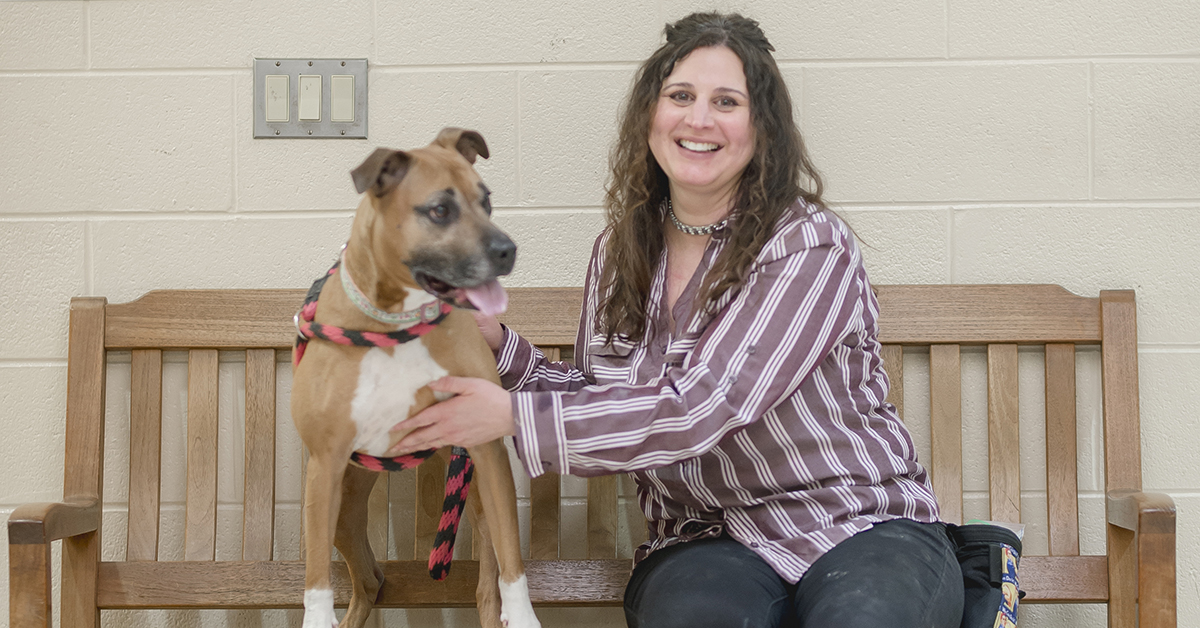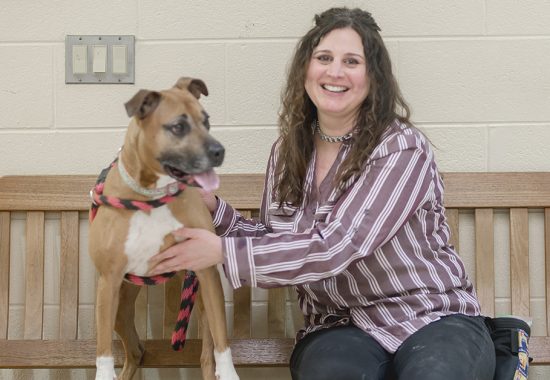
More than two million Americans are affected by aphasia, an acquired language impairment commonly resulting from stroke that affects the ability to remember and express words. Affected by the loss of words, these individuals also experience the loss of friendships and opportunities for community engagement.
Sharon M. Antonucci, PhD, CCC-SLP, recently received a grant from the National Institutes of Health’s Eunice Kennedy Shriver National Institute of Child Health and Human Development to evaluate an animal-assisted treatment for persons with aphasia entitled The Persons with Aphasia Training Dogs (PATD) Program. Targeting the psychosocial consequences of aphasia, including loss of self-confidence and social isolation, this study will harness the strengths of the individual with aphasia and the benefits of human-animal interaction.
The goals of the program are to:
- Determine whether people with aphasia, through participation in the PATD program, can learn and implement positive reinforcement techniques to train dogs in basic obedience skills
- Assess the feasibility of delivering the program in two service delivery models, with family dogs and shelter-dwelling dogs.
Focusing on these goals, the study team will demonstrate the viability of administering, and quantifying the effects of, canine-assisted aphasia treatment.
Although aphasia is, by definition, a difficulty with words, a major consequence of this condition is the not just finding the words to communicate, but, rather, the social isolation resulting from the loss of words. Consideringthat individuals with aphasia retain the drive to communicate and pragmatic communication skills such as use of ‘body language’, facial expression, and voice tone , they make ideal candidates to work with domestic animals who attend as much, if not more, to how we communicate than to what we say.
This PATD program will provide the foundation to expand aphasia rehabilitation research that targets the handicapping effects of aphasia to include rehabilitation techniques that leverage the benefits of human-animal interaction. In doing so, it aims to help participants live well with aphasia by increasing their confidence and social engagement.


18 comment on “MossRehab Aphasia Center Receives New NIH Grant to Study Animal-Assisted Therapy”